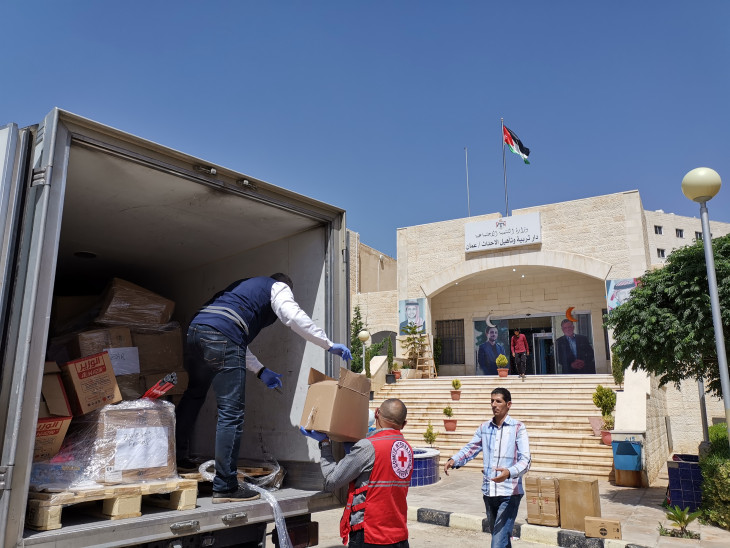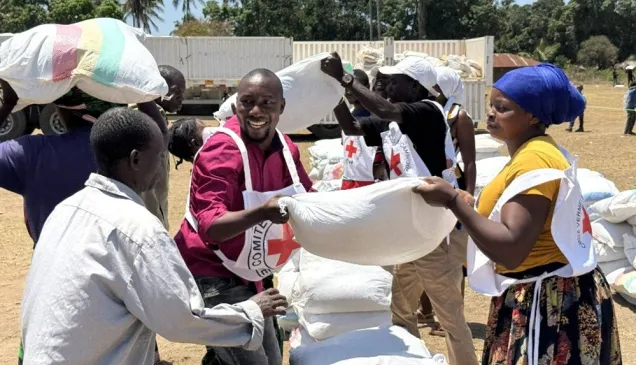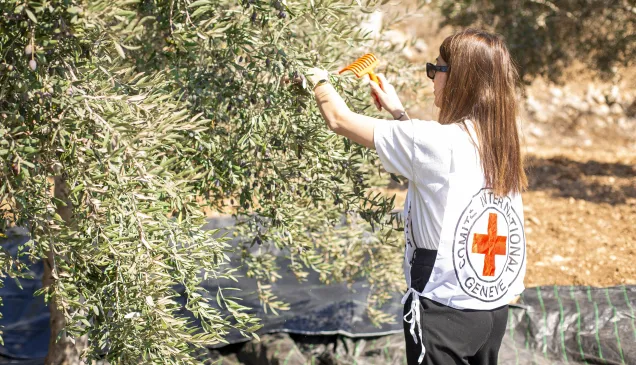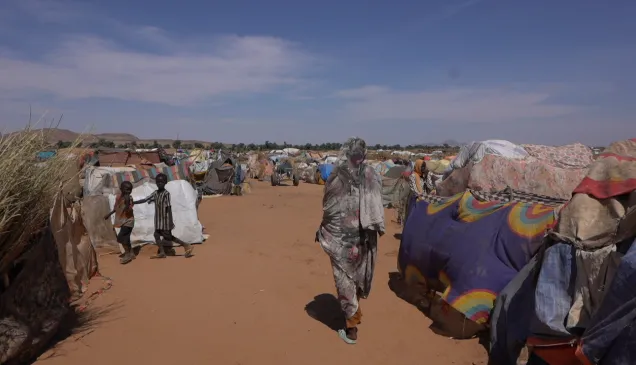ICRC and Jordan: Fighting back against a pandemic
Pandemics and their impact
Many people would agree that the last major pandemic to hit the world before COVID-19 was the Spanish flu of 1918, which reportedly infected 500 million people—one-third of the world’s population at the time—and left an estimated 50 million persons dead worldwide. Even though the world had become much more advanced in 2020 (when COVID-19 ravaged the globe) than it was in 1918, the virus that struck still dealt a tragic blow, infecting 96 million people and killing 2 million (as of January 20, 2021). It took the lives of many frontline health workers, destroyed economies, and threatened social fabrics.
As governments around the world struggled to understand, contain and defeat the virus, humanitarian organizations became key partners in some parts of the world, especially in conflict areas as well as in the aftermath of large-scale disasters or large concentrations of vulnerable persons. They lent their experience and resources to efforts to strengthen containment and mitigation measures.
Supporting detainees and health staff in places of detention

Sanitation and other items donated by the ICRC being offloaded at a Juvenile Rehabilitation Centre. Credit: Ysusf Sanchez
When epidemics break out, prison inmates are usually at greater risk if preventive measures are not immediately articulated and proactively implemented. The International Committee of the Red Cross (ICRC) has been working in places of detention for over 150 years and has garnered good experience in making such places safer during such emergencies. Therefore, one of the major humanitarian interventions of the ICRC in Jordan was to provide personal hygiene items for inmates and protective items for health staff in places of detention following the outbreak of the COVID-19 pandemic in March 2020. Furthermore, as part of efforts to prepare officers of the CRCD to implement infection prevention measures in Correctional facilities, the ICRC and the CRCD jointly held a series of workshops for these personnel.
Due to the support provided by the ICRC, the inmates got enhanced protection against the spread of the virus, while families of detainees could safely visit their loved ones. This was because we undertook the donation of sanitation and cleaning items for the use of inmates and families visiting them to ensure a safe and clean environment. The facilities supported received bars of soap, surgical gloves, surgical masks, disinfectant wipes and rubber gloves. Healthcare staff in the above-mentioned places of detention received PPEs and hygiene materials.
Contributing to the government’s emergency response capacity
The ICRC also re-routed its traditional Emergency Preparedness program support to hospitals that were in the frontline of the fight against the COVID-19 virus. Thus, Personal Protective Equipment (PPE) supplies and items were distributed to Al Bashir, Prince Hamza, and Queen Alia Hospitals, COVID-19 Surveillance teams in the Ministry of Health (MoH), Royal Medical Services, Judicial Ward of the Psychiatric Hospital in Fuheis, the Civil Defense Services and the Directorate of Health in Mafraq Governorate. The PPE package comprised gowns for patients, surgical masks, surgical gloves, face shields, and non-touch thermometers. It is instructive to mention as well that medical equipment and clinical furniture were provided to the Muwaqqar-2 and Balqa’a CRC clinics designated to receive and care for confirmed cases of COVID-19 among detainees.
Help the most vulnerable make ends meet amidst the pandemic

Fayez, a Syrian refugee who fled his war-torn country in 2012 opened a bakery in Mafraq with an ICRC grant and now meets the needs of his family. Credit: Amal Maayeh
As part of efforts to mitigate the impact of the pandemic on most vulnerable populations, some of the most vulnerable Syrian refugees benefited from cash grants to expand or restart livestock activities after they were impacted by COVID-19 restrictions, and some others were given cash support to meet their basic needs in this regard. We also maintained our Cash Transfer Programme (CTP) in support of Syrian refugees, ensuring that the monthly cash distribution assists them to meet some of their essential needs. It is instructive to note that this program, implemented in cooperation with the Jordan Red Crescent Society (JRCS), is now being wound down after fulfilling the purpose for which it was set up. (The program was instituted in 2013 for extremely vulnerable Syrian refugee families living in host communities).
The imposition of movement restrictions by the authorities to curtail the spread of the virus inadvertently imposed constraints on the cash distribution program of the ICRC for vulnerable refugees. We, therefore, needed to re-organize our approach, which saw the ICRC arranging to pay out the cash through banks which enabled those we serve to withdraw the funds from ATM machines. We, therefore, had to mark the floor at designated ATM points where these refugees would go to withdraw cash, to ensure compliance with physical distancing rules according to COVID- 19 protocols.
Connecting families despite movement restrictions
To enable refugees to maintain or re-establish contact with their families and loved ones, we continued our work under the Restoring Family Links (RFL) program and were able to serve1’829 clients through a rapidly established and innovative remote RFL service, making it possible for refugees to call the ICRC and be connected to their families. It is instructive to mention that this approach introduced by the ICRC for this service enabled to us connect to other people that were not traditionally using our RFL facility.
Working with our partners to enhance hospital capacity
The ICRC also contributed to enhancing the COVID 19 response of its partner, the JRCS, by providing much-needed equipment for the Intensive Care Unit (ICU), Laboratory, and Emergency Units of the JRCS Hospital as part of efforts to strengthen the overall capacity of the authorities in managing the pandemic.
Making sure that relevant supplies arrive where they are most needed
As the impact of the pandemic spread, the critical humanitarian operations of the ICRC in the Middle East and beyond received much needed humanitarian relief items through the Logistics Supply Chain (LSC) of the ICRC in Amman which shipped PPE supplies including surgical gloves, gloves, and non-touch infrared thermometers - weighing 113 tons– to these places, particularly to Aden, Sana’a, and Jerusalem to support the COVID-19 response.



